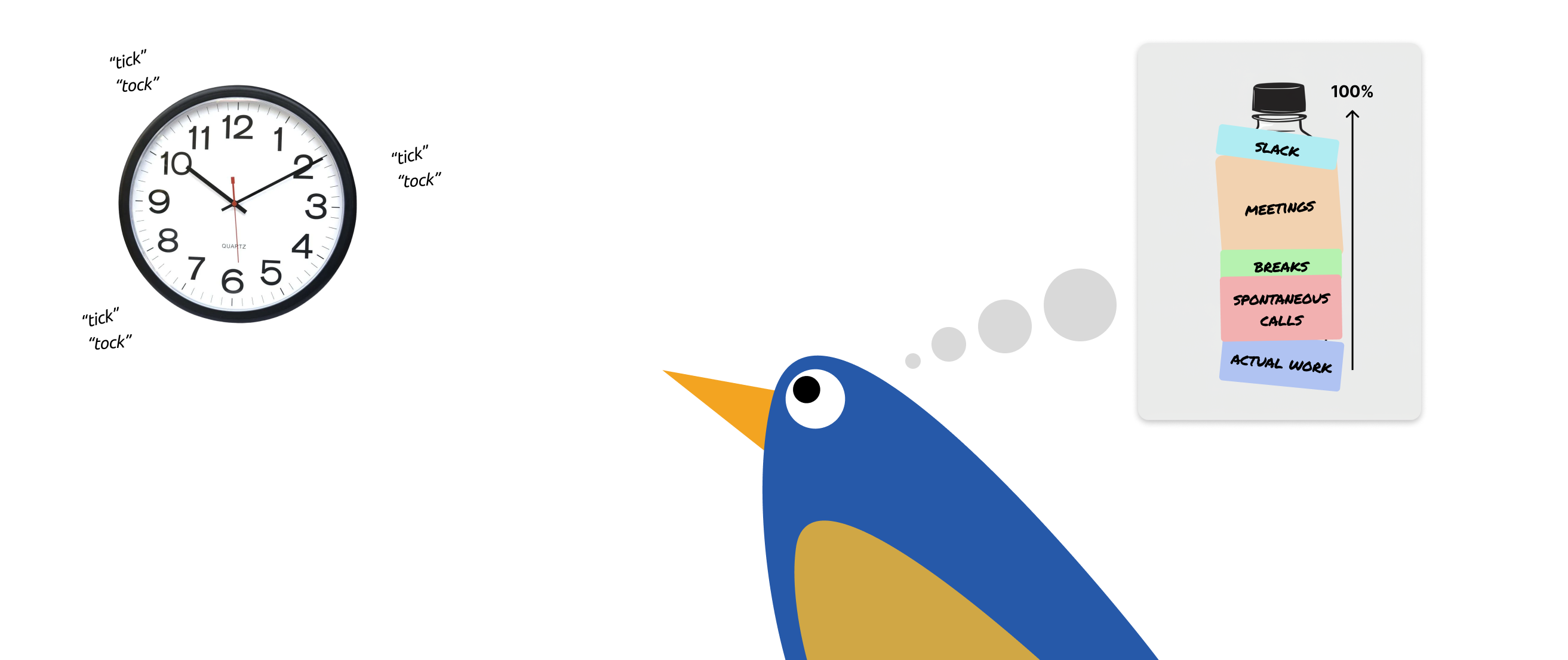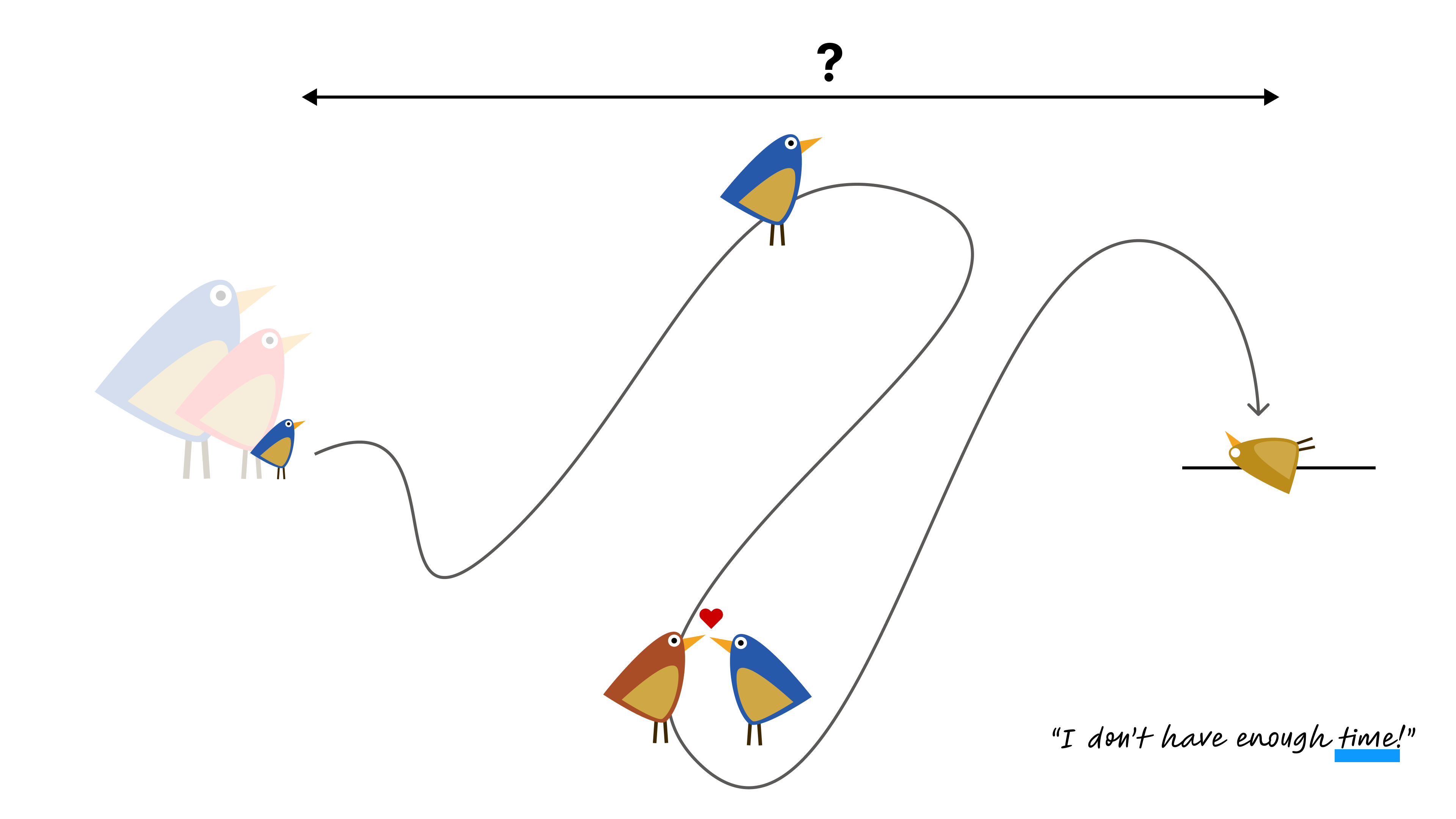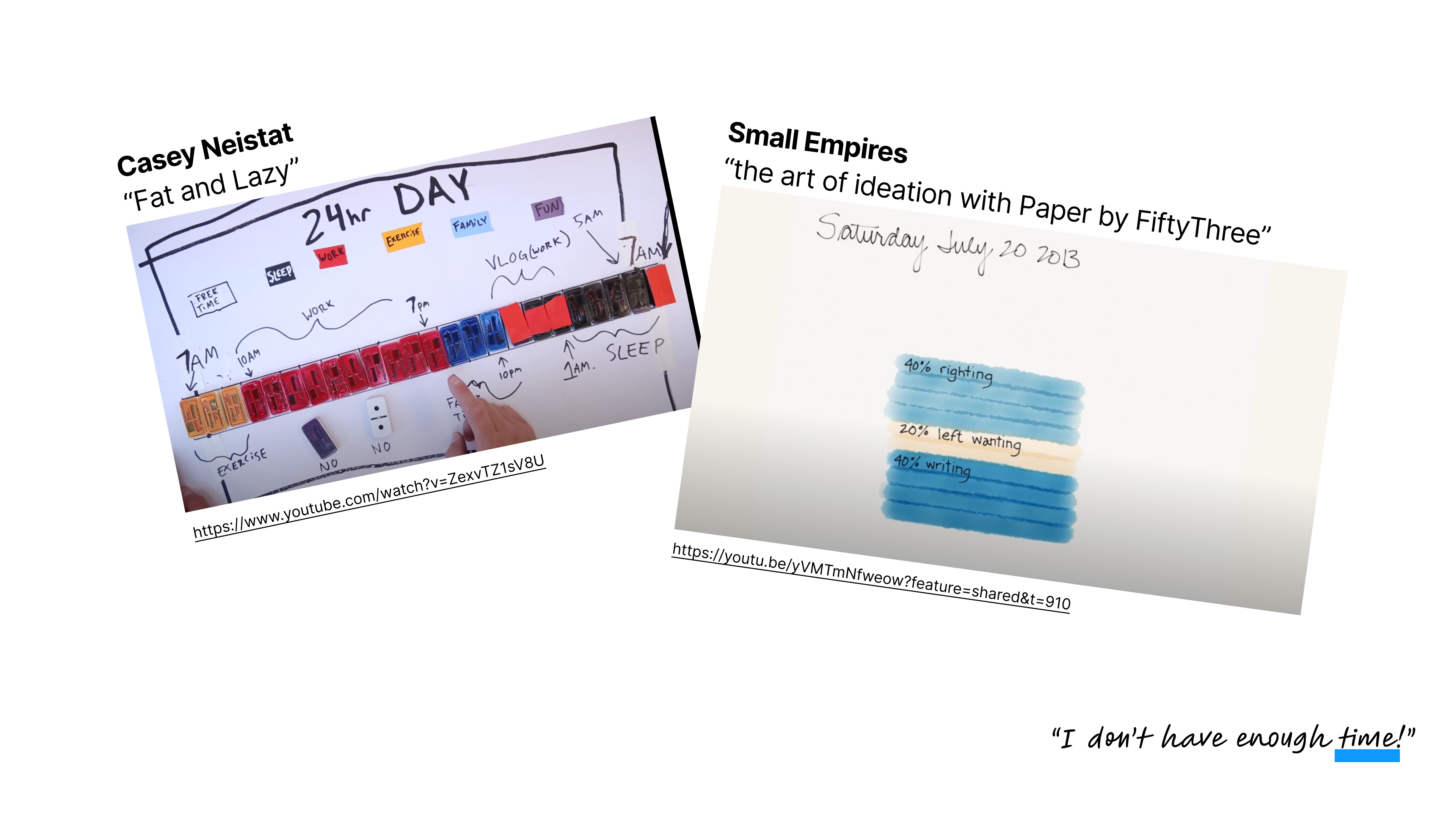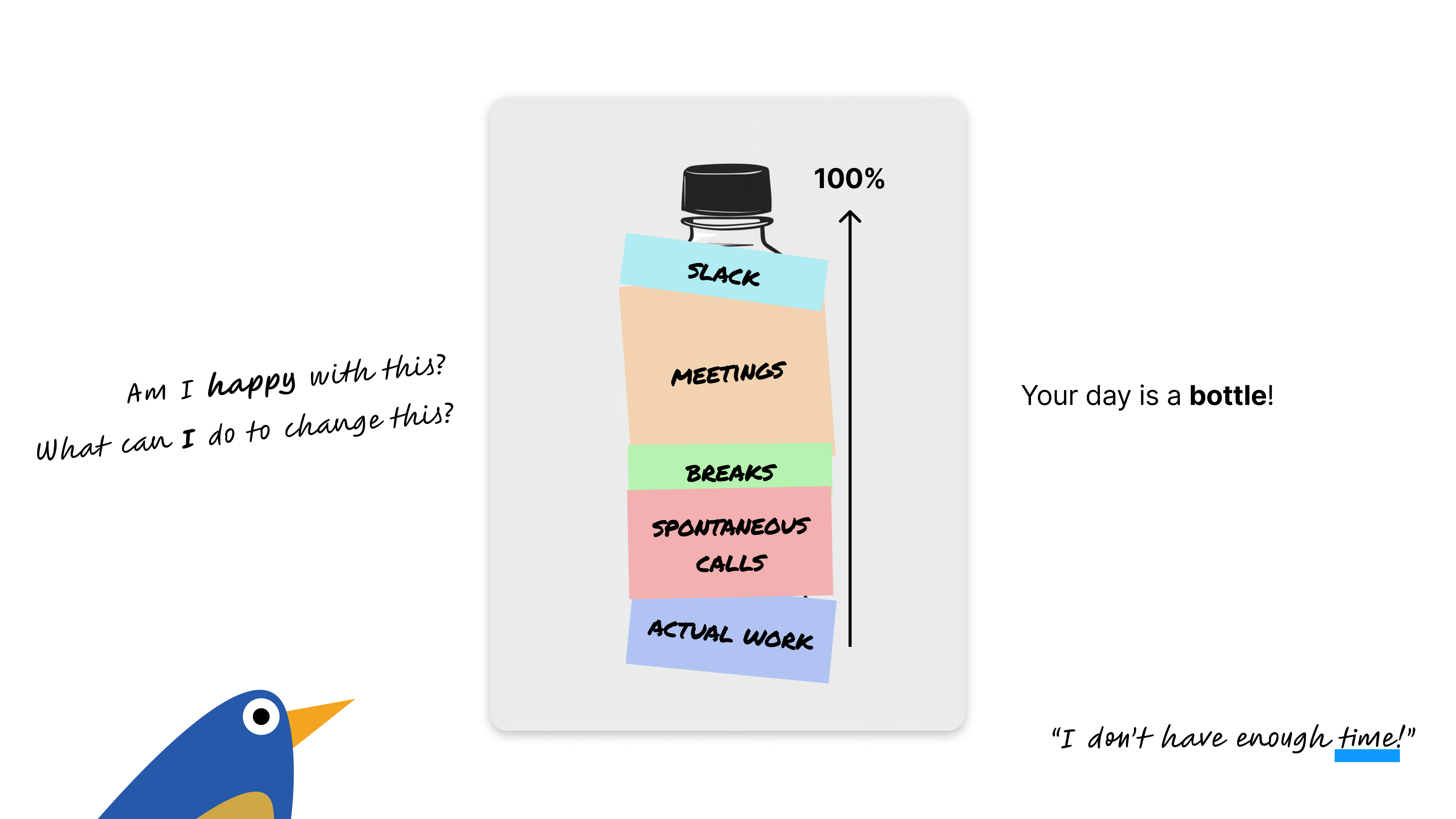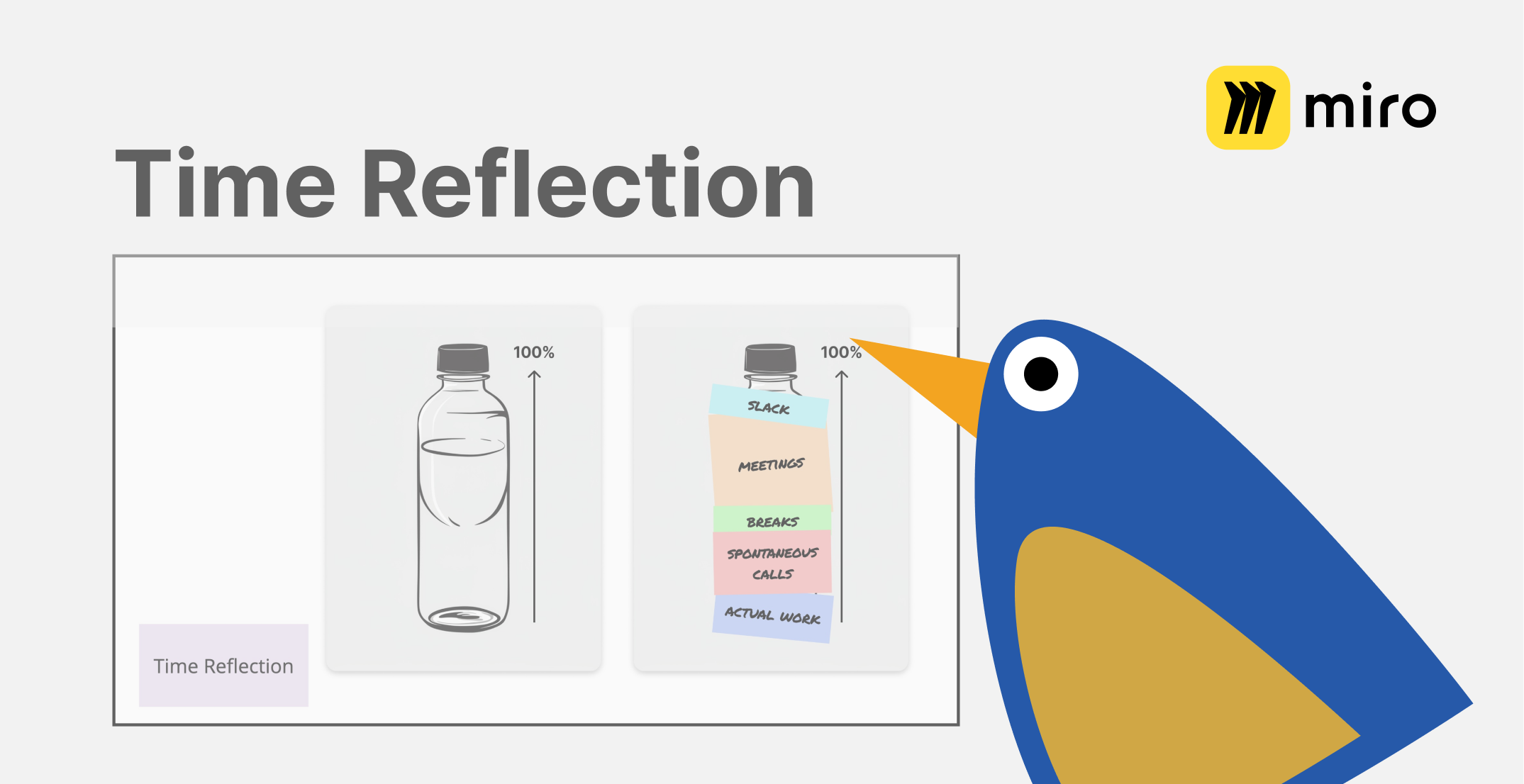In our money-obsessed world, we meticulously track every dollar spent, yet overlook our most precious and equalising resource: time. Unlike wealth, time truly levels the playing field - we each get exactly 24 hours daily, no exceptions. But how many of us approach our time with the same intentionality as our finances?
Most of us experience time passively, watching the clock tick away while waiting for moments to pass. This passive relationship keeps us trapped in a reactive cycle. The breakthrough comes when we shift our perspective to view time not as a flowing river we can't control, but as a container we actively fill. This simple mental shift transforms time from something that happens to us into something we consciously shape.
What really helped me to focus on my time differently were the following videos:
- Fat and Lazy — Time Stamp (3:33)
- Small Empires: the art of ideation with Paper by FiftyThree — Time Stamp (15:10)
By visualising time as a container, we can ask ourselves two powerful questions: "Am I happy with how I'm filling this container?" and "What changes would create a better distribution of my time?" This framework helps us identify activities that drain our energy without adding value and recognise imbalances in our time allocation.
While the concept is simple, execution requires the right tools that match your natural workflow. Digital tools like Notion excel at providing a bird's-eye view of your life planning, while calendar tools like Outlook become powerful when used intentionally with colour-coding and categorisation to visualise your time investment.
One of the biggest hidden time drains is inefficient communication. Understanding the difference between synchronous (real-time) and asynchronous (time-shifted) communication is crucial. Think of synchronous communication as a live performance - everyone must be present and engaged, making it perfect for complex problem-solving and relationship building. Asynchronous communication is more like leaving a thoughtful message in a bottle, ideal for detailed explanations and thoughtful feedback.
The key to mastering your time economy lies in making strategic choices about when to use each communication style. Urgent and important matters benefit from synchronous communication, while important but non-urgent tasks are often better handled asynchronously. Many effective communicators use a hybrid approach, starting asynchronously to gather thoughts, moving to synchronous for key discussions, and returning to asynchronous for documentation. Real transformation comes through regular reflection and adjustment. By tracking your time blocks, categorizing activities, and identifying patterns, you gain insights into your time distribution. But remember - time management isn't about achieving perfection. It's an ongoing journey of refinement and adaptation, where some weeks will feel balanced while others might seem chaotic.
Your time economy is uniquely yours. While frameworks and tools can guide you, the most effective approach will be the one that aligns with your personal and professional rhythms. The next time you look at your calendar, instead of seeing time as something that controls you, see it as something you actively shape. Your time container awaits your conscious choices—how will you choose to fill it?
Additional Resources:
